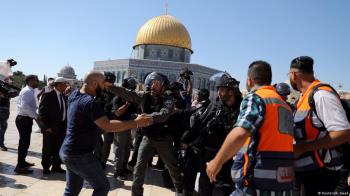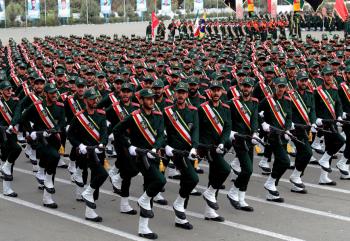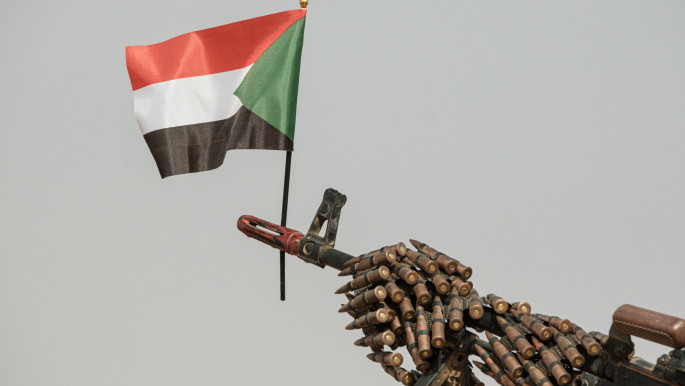Alwaght- After a several-month halt, Sudan is once again a theater for heavy military clashes.
The country is now one of the deadliest scenes of civil war in North Africa. In these war, the Sudanese army commanded by Abdul Fattah al-Burhan is fighting the Rapid Support Forces (RSF) commanded by Mohamed Hamdan Dagalo, also known by his nom de guerre Abu Hemedti.
In 2021, al-Burhan along with his aide Dagalo staged a coup, ousting President Omar al-Bashir. Two years later, they turned against each other.
Behind these clashes, regional powers can be tracked. Countries like the UAE, Turkey, Egypt, and Russia are accused of supporting the warring sides. Meanwhile, the Emirati role is more noticeable. UN and media reports suggest that Abu Dhabi is providing funding, logistics, and weapons to the RSF.
Here a question presents itself: Why are the Emiratis going to the great lengths to back a militant force accused of genocide and war crimes?
1. Sudan's gold: UAE’s secret driver
Sudan, one of Africa's largest countries, is endowed with abundant natural resources, including vast agricultural land, gas, and gold, ranking as the continent's third-largest producer.
The nation yields over 80 tons of gold each year. Yet, according to both official and unofficial data, roughly 90 percent of Sudan's gold exports, both legal and smuggled, re funneled to the UAE.
The RSF militia controls a large portion of the gold mines in the regions of Darfur, Kordofan, and Blue Nile. The group exploits the illegal extraction and sale of gold to fund its war. Commercial networks linked to them have established companies in Dubai and Abu Dhabi to sell the gold and channel the revenues.
In effect, by purchasing and refining Sudan's gold, the UAE sustains the primary financial lifeline of the RSF. This revenue stream has enabled the militia to challenge the official army in a prolonged and bloody conflict. To put it differently, gold is the essential fuel for this war, and Dubai is its refinery.
2. Controlling Sudan's ports in the Red Sea: UAE’s geopolitical dream
Geopolitically, this country is the neighbor of Libya, where Abu Dhabi supports the eastern rule led by General Khalifa Haftar. Sudan also has a coastline on the Red Sea, providing a vital shipping route for oil and goods transportation.
The Red Sea is a vital global trade route and a nexus connecting the Persian Gulf, Africa, and Europe. Over the past two decades, the UAE has worked to secure its maritime corridors by investing in strategic ports from Aden to Djibouti and Assab in Eritrea.
In Sudan, Abu Dhabi had signed a multi-billion dollar contract to build the new Abu Amama port north of Port Sudan, prior to the outbreak of war. However, the deal stalled after disputes intensified between the government of General al-Burhan and the UAE.
Now, with the help of the RSF, the UAE is seeking to pave its way back to Sudan's coasts. Ultimately, controlling Sudan's ports is not just an economic objective, but a step toward expanding the UAE's maritime influence in the Red Sea and competing with Saudi Arabia.
Direct access to these coasts would allow Abu Dhabi to manage the export routes for gold and the import of agricultural goods without relying on Sudan's central government.
Abu Dhabi is also aiming to counter the influence of Saudi Arabia and Turkey in Sudan and to prevent the spread of political Islam, which it sees as a threat to its own security.
The peak of relationship between Saudi Arabia and the Sudanese army stems from their cooperation in Yemen, after Khartoum joined the Saudi-led coalition in the war in 2015. Al-Burhan led the Sudanese forces operating under Saudi command, while Hemedti positioned his troops alongside Emirati forces and the Southern Transitional Council (STC).
3. Banking and financial influence: Dominating Sudan's monetary infrastructure
The third factor driving the UAE’s push for influence in Sudan is a thirst to control Sudanese financial network. Before to war, Dubai Islamic Bank was a major shareholder in Sudan's largest financial institution, Bank of Khartoum. Many of Sudan's international transactions were conducted through Dubai-based banks.
According to reports in Sudanese media, nearly 23 percent of Sudan's banking institutions were directly or indirectly under the influence of Emirati investors. This financial foothold allowed the RSF, after the war began, to leverage financial networks in the UAE to convert the revenues from gold exports into weapons and military equipment.
In other words, the UAE has aided the survival of the rebel groups not only through arms, but also through the banking system itself.
4. Land and food: Sudan as UAE’s food basket
The UAE is heavily dependent on food imports, with over 90 percent of its food supply coming from abroad. To mitigate this vulnerability, Abu Dhabi has pursued a strategy of transnational agricultural land investment.
With its fertile land and abundant water resources, Sudan became a primary target for this strategy. Over the past decade, the UAE has leased approximately 50,000 hectares of Sudanese farmland to produce wheat, corn, and animal feed.
These lands are primarily located in Sudan's fertile Nile River and Al Jazirah regions, the areas that are now partially affected by the ongoing conflict and falling under the control of the RSF.
By backing the the militants, Abu Dhabi appears to be securing a guarantee: ensuring its continued access to Sudan's agricultural lands and the vital supply lines for exports.
From economic interests to secret military intervention
By putting the four above-mentioned factors, we can have a clear picture:
Through its support for the RSF the UAE is attempting to build a multi-faceted network of economic, financial, and geopolitical influence within Sudan.
This backing is not driven by economic motives alone; it is a core component of Abu Dhabi's larger strategy to become the dominant power in the Red Sea and the Horn of Africa.
In practice, however, this policy has intensified the war, caused widespread devastation, and raised the specter of ethnic cleansing in Darfur.
The UN and human rights monitors have accused the RSF of mass killings, rape, the burning of villages, and the displacement of over five million people.
If it is proven that the UAE knowingly provided the RSF with weapons and financial resources, the country could, under international law, be found complicit in genocide.
Recently, Sudan filed a complaint against the Emirates at the International Court of Justice , the UN's top court in The Hague, asserting that Abu Dhabi is complicit in genocide due to its support for the rebels.
A calculation dangerous for Abu Dhabi
The UAE's support to the RSF is driven by a mix of economic greed and geopolitical aspirations.
Abu Dhabi is trying to get a deep and sustainable foothold in this crisis-ridden country through controlling its gold resources, ports, banks, and farming lands.
But this strategy has two heavy consequences:
1.Moral and legal risks: The world is growing more and more conscious of the Emirati role in this civil war. The European Union and the US have raised possibility of sanctioning UAE companies assisting the RSF. So, internationally and regionally, a notion is growing: Abu Dhabi is a destabilizing actor.
2. Regional instability: The longer war in Sudan is, the weaker will be the security in the Red Sea and Horn of Africa, something indirectly affecting world and Emirati trade.
Finally, the UAE's support to the RSF may in the short run ensure its access to Sudan's resources, but in the long run is will harm the Persian Gulf monarchy's regional credibility and international legitimacy.



























